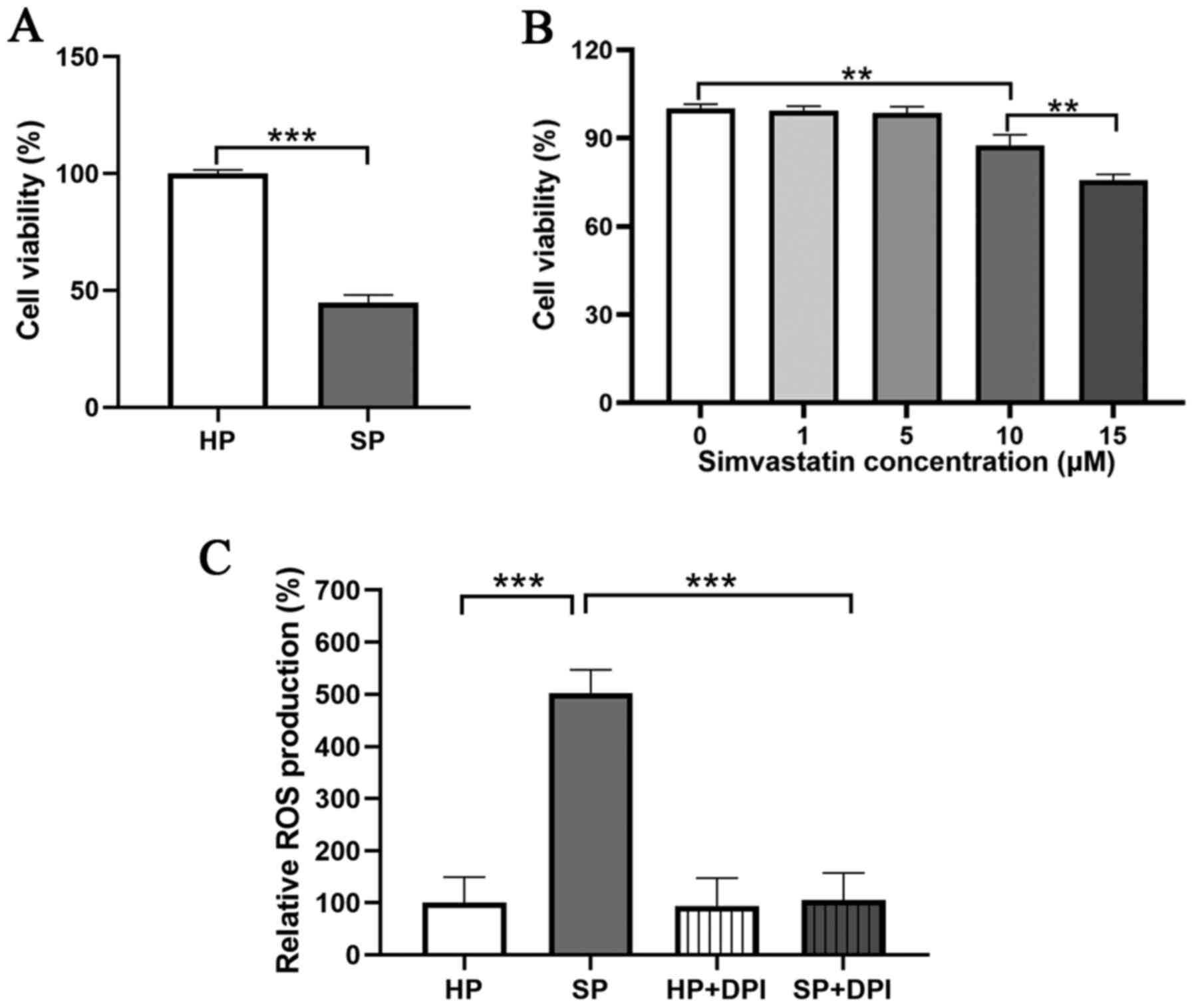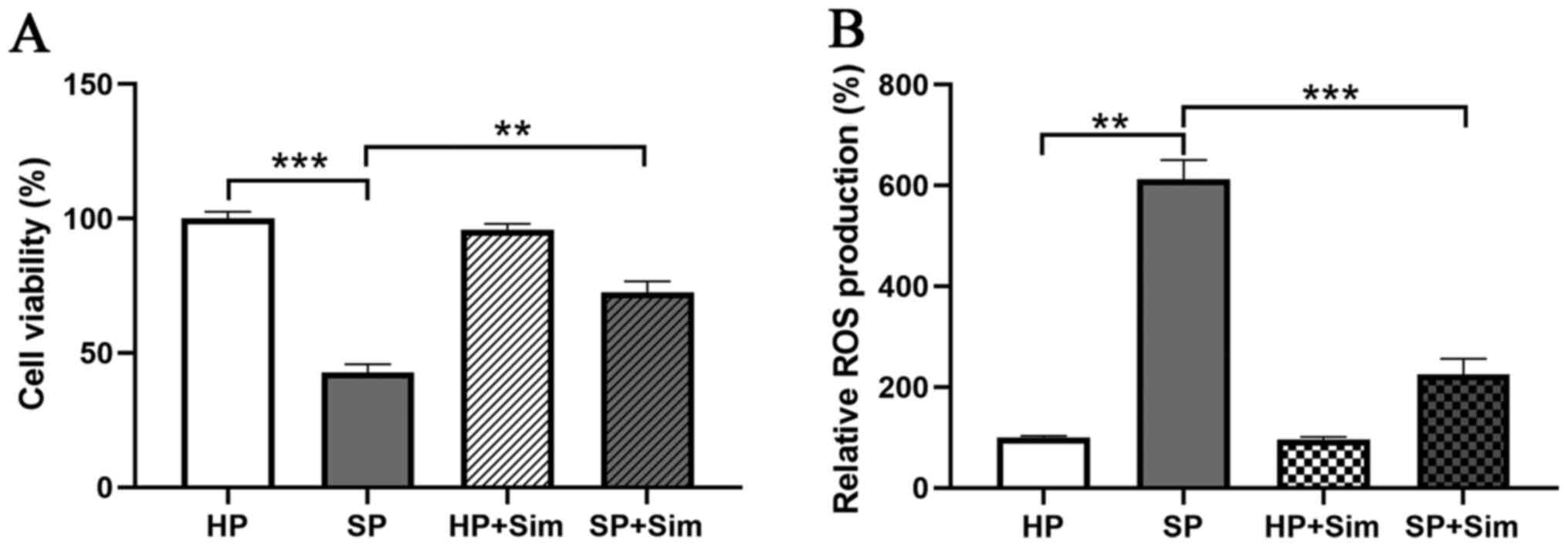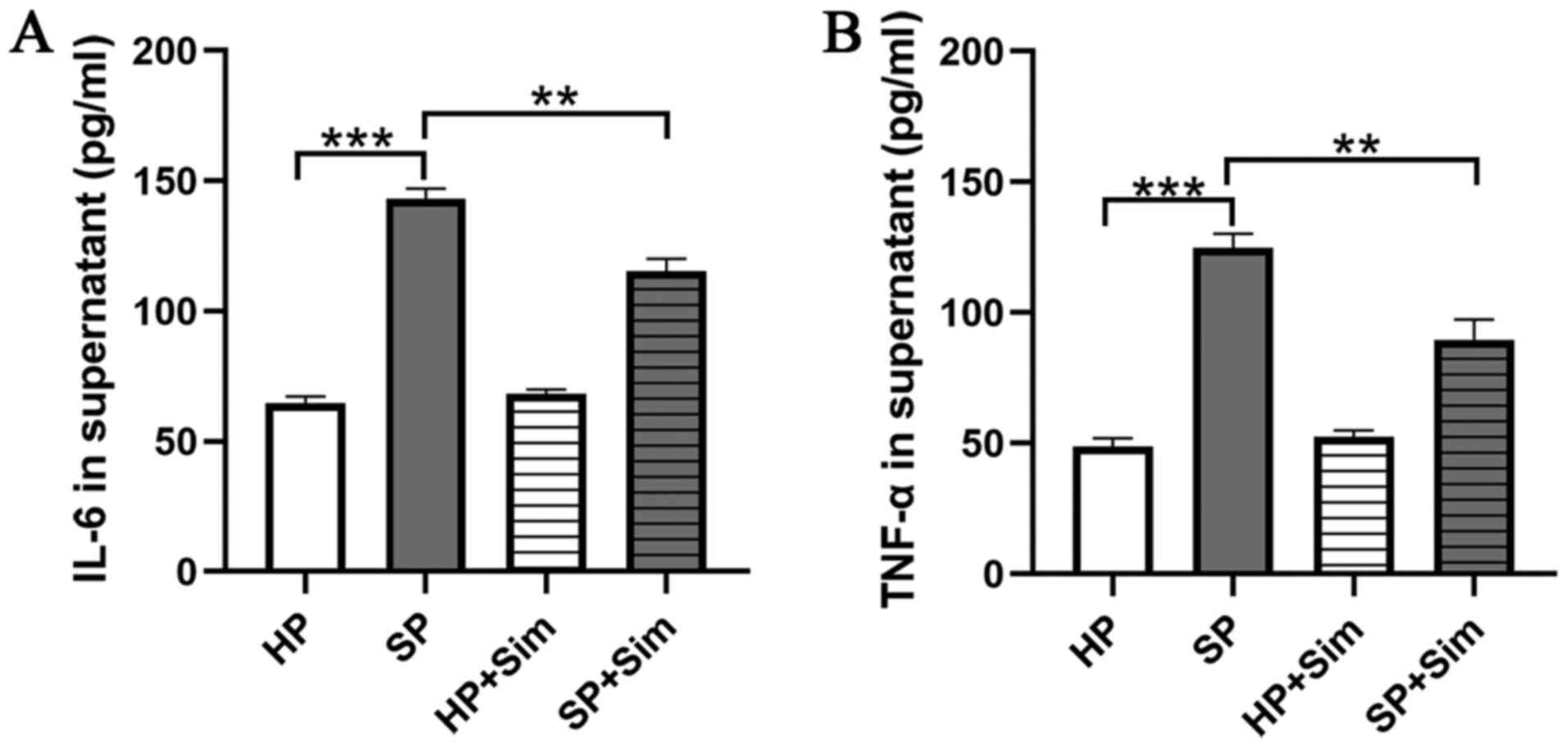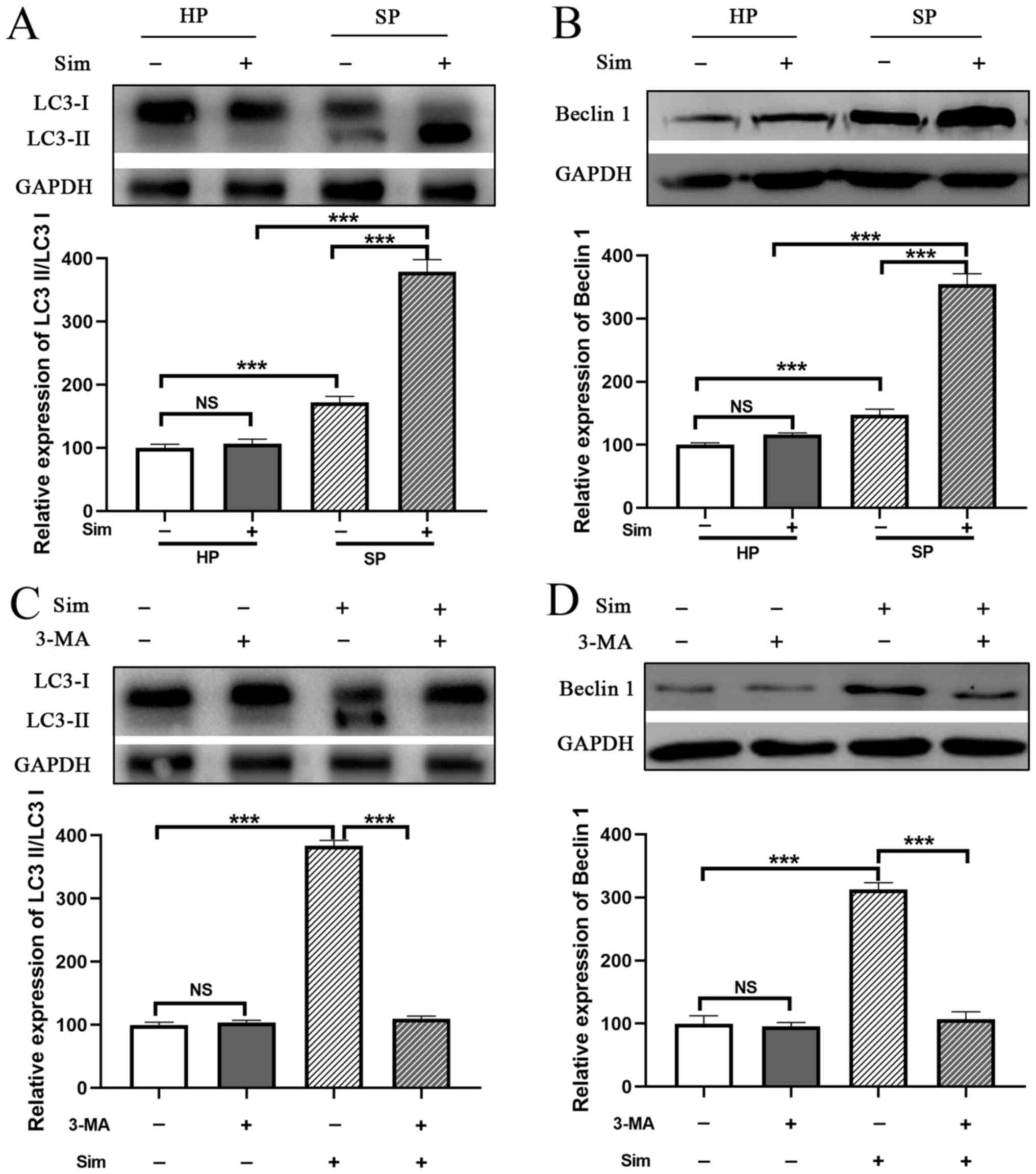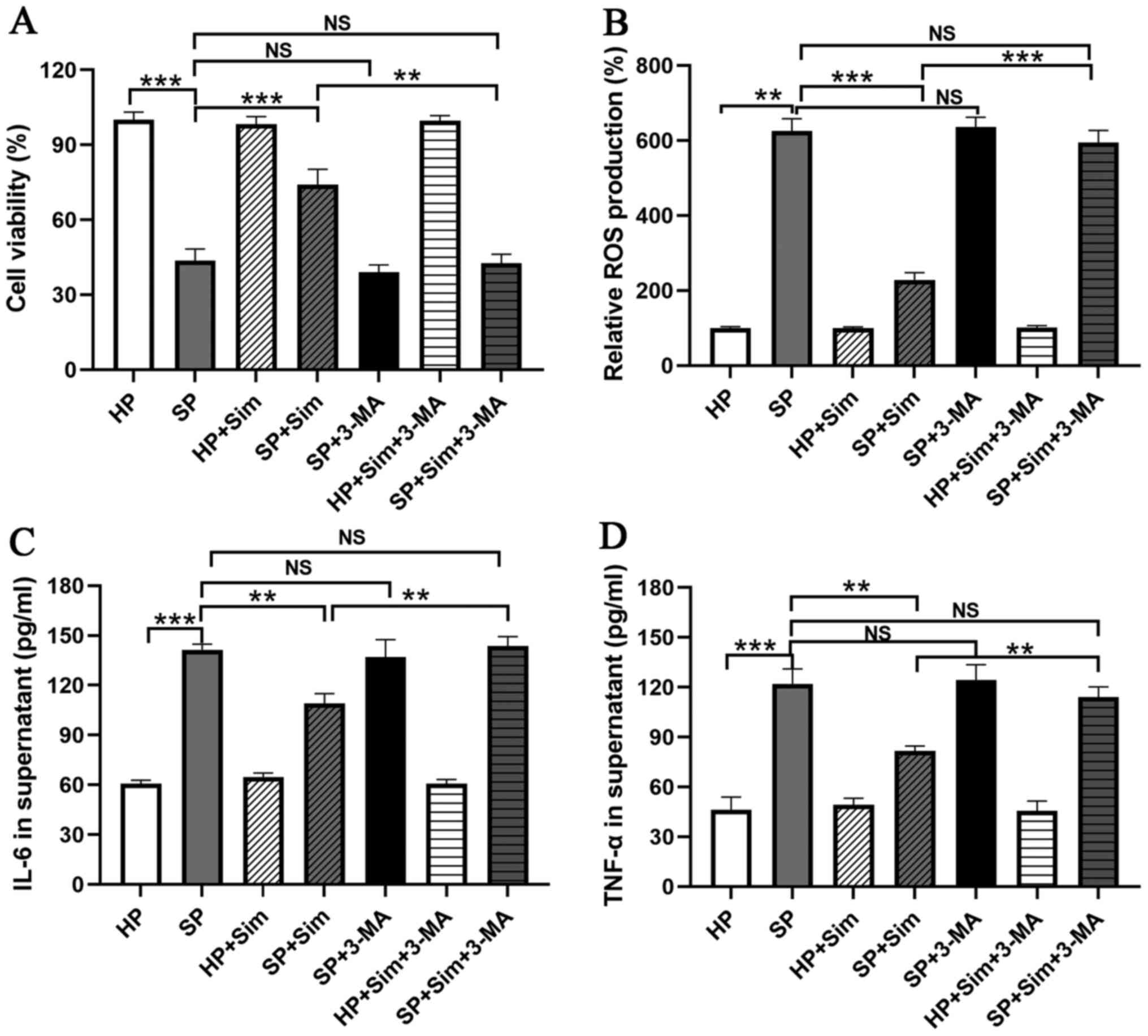|
1
|
Rhee C, Dantes R, Epstein L, Murphy DJ,
Seymour CW, Iwashyna TJ, Kadri SS, Angus DC, Danner RL, Fiore AE,
et al: CDC prevention epicenter, program, Incidence and trends of
sepsis in US hospitals using clinical vs claims data, 2009-2014.
JAMA. 318:1241–1249. 2017. View Article : Google Scholar : PubMed/NCBI
|
|
2
|
Rello J, Valenzuela-Sánchez F,
Ruiz-Rodriguez M and Moyano S: Sepsis: A review of advances in
management. Adv Ther. 34:2393–2411. 2017. View Article : Google Scholar : PubMed/NCBI
|
|
3
|
Lelubre C and Vincent JL: Mechanisms and
treatment of organ failure in sepsis. Nat Rev Nephrol. 14:417–427.
2018. View Article : Google Scholar : PubMed/NCBI
|
|
4
|
Savi FF, de Oliveira A, de Medeiros GF,
Bozza FA, Michels M, Sharshar T, Dal-Pizzol F and Ritter C: What
animal models can tell us about long-term cognitive dysfunction
following sepsis: A systematic review. Neurosci Biobehav Rev.
124:386–404. 2021. View Article : Google Scholar : PubMed/NCBI
|
|
5
|
Steinhagen F, Schmidt SV, Schewe JC,
Peukert K, Klinman DM and Bode C: Immunotherapy in sepsis - brake
or accelerate? Pharmacol Ther. 208:1074762020. View Article : Google Scholar : PubMed/NCBI
|
|
6
|
Shen X, Cao K, Zhao Y and Du J: Targeting
neutrophils in Sepsis: From mechanism to translation. Front
Pharmacol. 12:6442702021. View Article : Google Scholar : PubMed/NCBI
|
|
7
|
Dobesh PP and Olsen KM: Statins role in
the prevention and treatment of sepsis. Pharmacol Res. 88:31–40.
2014. View Article : Google Scholar : PubMed/NCBI
|
|
8
|
Braga Filho JA, Abreu AG, Rios CE, Trovão
LO, Silva DL, Cysne DN, Nascimento JR, Fortes TS, Silva LA, Guerra
RN, et al: Prophylactic treatment with simvastatin modulates the
immune response and increases animal survival following lethal
sepsis infection. Front Immunol. 9:21372018. View Article : Google Scholar : PubMed/NCBI
|
|
9
|
de Jesus Oliveira FM,
Gonçalves-de-Albuquerque CF, de Moraes IM, Reis PA, Rocha VN, Bozza
PT, Silva AR and de Castro Faria Neto HC: Simvastatin posttreatment
controls inflammation and improves bacterial clearance in
experimental sepsis. Mediators Inflamm. Oct 14–2020.(Epub ahead of
print). doi: 10.1155/2020/1839762. View Article : Google Scholar : PubMed/NCBI
|
|
10
|
Kang Y, Li Y, Wen H, Zhu J, Zheng J and
Feng Z: Prevention of renal ischemia and reperfusion injury by
penehyclidine hydrochloride through autophagy activation. Mol Med
Rep. 21:2182–2192. 2020.PubMed/NCBI
|
|
11
|
Wang Y, Zhu J, Liu Z, Shu S, Fu Y, Liu Y,
Cai J, Tang C, Liu Y, Yin X, et al: The PINK1/PARK2/optineurin
pathway of mitophagy is activated for protection in septic acute
kidney injury. Redox Biol. 38:1017672021. View Article : Google Scholar : PubMed/NCBI
|
|
12
|
Quach C, Song Y, Guo H, Li S, Maazi H,
Fung M, Sands N, O'Connell D, Restrepo-Vassalli S, Chai B, et al: A
truncating mutation in the autophagy gene UVRAG drives inflammation
and tumorigenesis in mice. Nat Commun. 10:56812019. View Article : Google Scholar : PubMed/NCBI
|
|
13
|
Bruiners N, Dutta NK, Guerrini V, Salamon
H, Yamaguchi KD, Karakousis PC and Gennaro ML: The anti-tubercular
activity of simvastatin is mediated by cholesterol-driven autophagy
via the AMPK-mTORC1-TFEB axis. J Lipid Res. 61:1617–1628. 2020.
View Article : Google Scholar : PubMed/NCBI
|
|
14
|
Carloni S and Balduini W: Simvastatin
preconditioning confers neuroprotection against hypoxia-ischemia
induced brain damage in neonatal rats via autophagy and silent
information regulator 1 (SIRT1) activation. Exp Neurol.
324:1131172020. View Article : Google Scholar : PubMed/NCBI
|
|
15
|
Singer M, Deutschman CS, Seymour CW,
Shankar-Hari M, Annane D, Bauer M, Bellomo R, Bernard GR, Chiche
JD, Coopersmith CM, et al: The third international consensus
definitions for sepsis and septic shock (Sepsis-3). JAMA.
315:801–810. 2016. View Article : Google Scholar : PubMed/NCBI
|
|
16
|
Maianski NA, Mul FP, van Buul JD, Roos D
and Kuijpers TW: Granulocyte colony-stimulating factor inhibits the
mitochondria-dependent activation of caspase-3 in neutrophils.
Blood. 99:672–679. 2002. View Article : Google Scholar : PubMed/NCBI
|
|
17
|
Sha LL, Wang H, Wang C, Peng HY, Chen M
and Zhao MH: Autophagy is induced by anti-neutrophil cytoplasmic
Abs and promotes neutrophil extracellular traps formation. Innate
Immun. 22:658–665. 2016. View Article : Google Scholar : PubMed/NCBI
|
|
18
|
Xie T, Duan Z, Sun S, Chu C and Ding W:
β-Lactams modulate neutrophil extracellular traps formation
mediated by mTOR signaling pathway. Biochem Biophys Res Commun.
534:408–414. 2021. View Article : Google Scholar : PubMed/NCBI
|
|
19
|
Angus DC, Linde-Zwirble WT, Lidicker J,
Clermont G, Carcillo J and Pinsky MR: Epidemiology of severe sepsis
in the United States: Analysis of incidence, outcome, and
associated costs of care. Crit Care Med. 29:1303–1310. 2001.
View Article : Google Scholar : PubMed/NCBI
|
|
20
|
Paudel S, Baral P, Ghimire L, Bergeron S,
Jin L, DeCorte JA, Le JT, Cai S and Jeyaseelan S: CXCL1 regulates
neutrophil homeostasis in pneumonia-derived sepsis caused by
Streptococcus pneumoniae serotype 3. Blood. 133:1335–1345. 2019.
View Article : Google Scholar : PubMed/NCBI
|
|
21
|
Zhang S, Rahman M, Zhang S, Qi Z and
Thorlacius H: Simvastatin antagonizes CD40L secretion, CXC
chemokine formation, and pulmonary infiltration of neutrophils in
abdominal sepsis. J Leukoc Biol. 89:735–742. 2011. View Article : Google Scholar : PubMed/NCBI
|
|
22
|
Zhang S, Luo L, Wang Y, Rahman M, Lepsenyi
M, Syk I, Jeppsson B and Thorlacius H: Simvastatin protects against
T cell immune dysfunction in abdominal sepsis. Shock. 38:524–531.
2012. View Article : Google Scholar : PubMed/NCBI
|
|
23
|
Hoetzenecker W, Echtenacher B, Guenova E,
Hoetzenecker K, Woelbing F, Brück J, Teske A, Valtcheva N, Fuchs K,
Kneilling M, et al: ROS-induced ATF3 causes susceptibility to
secondary infections during sepsis-associated immunosuppression.
Nat Med. 18:128–134. 2011. View
Article : Google Scholar : PubMed/NCBI
|
|
24
|
Durand A, Duburcq T, Dekeyser T, Neviere
R, Howsam M, Favory R and Preau S: Involvement of mitochondrial
disorders in septic cardiomyopathy. Oxid Med Cell Longev.
2017:40763482017. View Article : Google Scholar : PubMed/NCBI
|
|
25
|
Yang Y, Li L, Hang Q, Fang Y, Dong X, Cao
P, Yin Z and Luo L: γ-glutamylcysteine exhibits anti-inflammatory
effects by increasing cellular glutathione level. Redox Biol.
20:157–166. 2019. View Article : Google Scholar : PubMed/NCBI
|
|
26
|
Zhou L, Wang F, Sun R, Chen X, Zhang M, Xu
Q, Wang Y, Wang S, Xiong Y, Guan KL, et al: SIRT5 promotes IDH2
desuccinylation and G6PD deglutarylation to enhance cellular
antioxidant defense. EMBO Rep. 17:811–822. 2016. View Article : Google Scholar : PubMed/NCBI
|
|
27
|
Javeshghani D, Magder SA, Barreiro E,
Quinn MT and Hussain SN: Molecular characterization of a
superoxide-generating NAD(P)H oxidase in the ventilatory muscles.
Am J Respir Crit Care Med. 165:412–418. 2002. View Article : Google Scholar : PubMed/NCBI
|
|
28
|
Catalão CH, Santos-Júnior NN, da Costa LH,
Souza AO, Alberici LC and Rocha MJ: Brain oxidative stress during
experimental sepsis is attenuated by simvastatin administration.
Mol Neurobiol. 54:7008–7018. 2017. View Article : Google Scholar : PubMed/NCBI
|
|
29
|
Morrow KN, Coopersmith CM and Ford ML:
IL-17, IL-27, and IL-33: A novel axis linked to immunological
dysfunction during sepsis. Front Immunol. 10:19822019. View Article : Google Scholar : PubMed/NCBI
|
|
30
|
Grondman I, Pirvu A, Riza A, Ioana M and
Netea MG: Biomarkers of inflammation and the etiology of sepsis.
Biochem Soc Trans. 48:1–14. 2020. View Article : Google Scholar : PubMed/NCBI
|
|
31
|
Chaudhry H, Zhou J, Zhong Y, Ali MM,
McGuire F, Nagarkatti PS and Nagarkatti M: Role of cytokines as a
double-edged sword in sepsis. In Vivo. 27:669–684. 2013.PubMed/NCBI
|
|
32
|
Wu HP, Chen CK, Chung K, Tseng JC, Hua CC,
Liu YC, Chuang DY and Yang CH: Serial cytokine levels in patients
with severe sepsis. Inflamm Res. 58:385–393. 2009. View Article : Google Scholar : PubMed/NCBI
|
|
33
|
Finnerty CC, Herndon DN, Chinkes DL and
Jeschke MG: Serum cytokine differences in severely burned children
with and without sepsis. Shock. 27:4–9. 2007. View Article : Google Scholar : PubMed/NCBI
|
|
34
|
Dinarello CA: The proinflammatory
cytokines interleukin-1 and tumor necrosis factor and treatment of
the septic shock syndrome. J Infect Dis. 163:1177–1184. 1991.
View Article : Google Scholar : PubMed/NCBI
|
|
35
|
Cheng Z, Abrams ST, Toh J, Wang SS, Wang
Z, Yu Q, Yu W, Toh CH and Wang G: The critical roles and mechanisms
of immune cell death in sepsis. Front Immunol. 11:19182020.
View Article : Google Scholar : PubMed/NCBI
|
|
36
|
Meng W, Paunel-Görgülü A, Flohé S,
Hoffmann A, Witte I, MacKenzie C, Baldus SE, Windolf J and Lögters
TT: Depletion of neutrophil extracellular traps in vivo results in
hypersusceptibility to polymicrobial sepsis in mice. Crit Care.
16:R1372012. View
Article : Google Scholar : PubMed/NCBI
|
|
37
|
Cheng Z, Abrams ST, Alhamdi Y, Toh J, Yu
W, Wang G and Toh CH: Circulating histones are major mediators of
multiple organ dysfunction syndrome in acute critical illnesses.
Crit Care Med. 47:e677–e684. 2019. View Article : Google Scholar : PubMed/NCBI
|
|
38
|
Yang YM, Li YH, Ding LL, Fu Y and Li N:
Regulatory effect of lncRNA NKILA on autophagy induced by sepsis
kidney injury. Eur Rev Med Pharmacol Sci. 24:40572020.PubMed/NCBI
|
|
39
|
Oami T, Watanabe E, Hatano M, Teratake Y,
Fujimura L, Sakamoto A, Ito C, Toshimori K, Swanson PE and Oda S:
Blocking liver autophagy accelerates apoptosis and mitochondrial
injury in hepatocytes and reduces time to mortality in a murine
sepsis model. Shock. 50:427–434. 2018. View Article : Google Scholar : PubMed/NCBI
|
|
40
|
Piplani H, Marek-Iannucci S, Sin J, Hou J,
Takahashi T, Sharma A, de Freitas Germano J, Waldron RT,
Saadaeijahromi H, Song Y, et al: Simvastatin induces autophagic
flux to restore cerulein-impaired phagosome-lysosome fusion in
acute pancreatitis. Biochim Biophys Acta Mol Basis Dis.
165530:20191865.PubMed/NCBI
|
|
41
|
Baechler BL, Bloemberg D and Quadrilatero
J: Mitophagy regulates mitochondrial network signaling, oxidative
stress, and apoptosis during myoblast differentiation. Autophagy.
15:1606–1619. 2019. View Article : Google Scholar : PubMed/NCBI
|
|
42
|
Giegerich AK, Kuchler L, Sha LK, Knape T,
Heide H, Wittig I, Behrends C, Brüne B and von Knethen A:
Autophagy-dependent PELI3 degradation inhibits proinflammatory IL1B
expression. Autophagy. 10:1937–1952. 2014. View Article : Google Scholar : PubMed/NCBI
|















